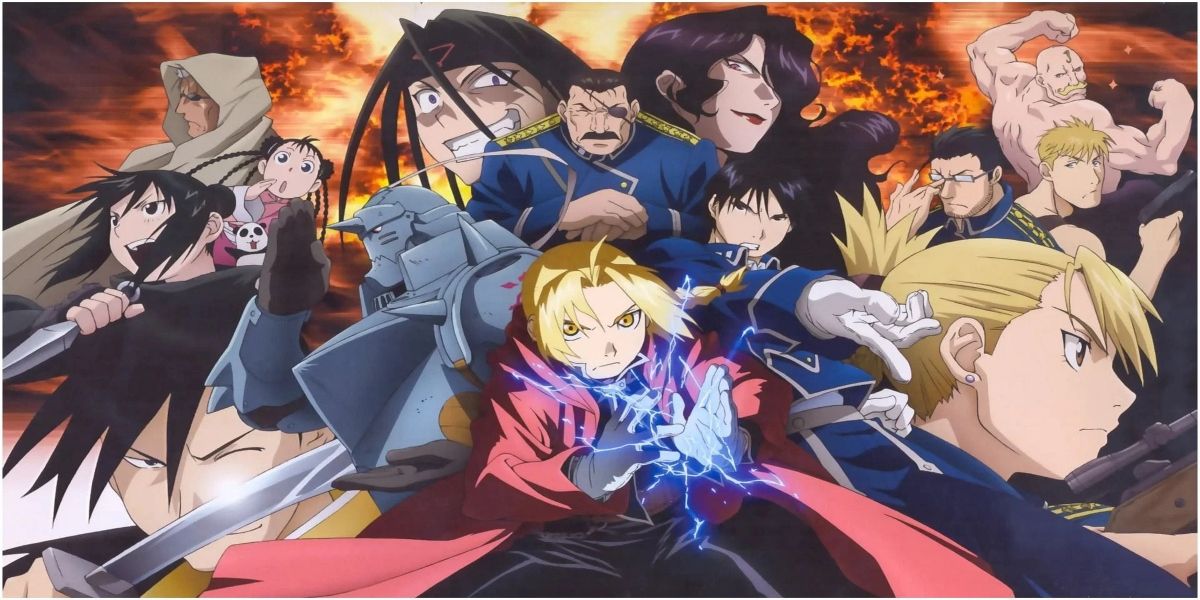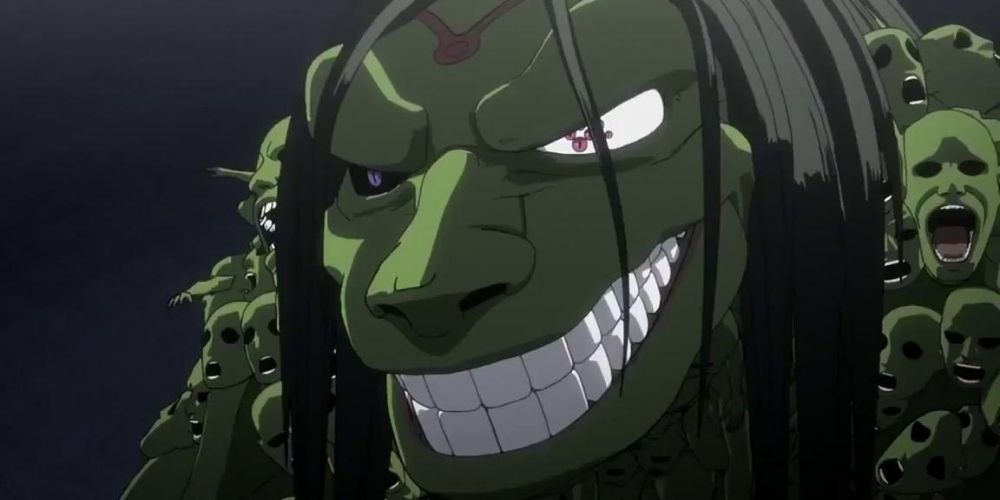Fullmetal Alchemist: Brotherhood still ranks as one of the best and most popular anime series of all time for many reasons, including its deeply nuanced take on ethics, human nature, and justice. Though many shonen anime pit good against evil, Fullmetal Alchemist isn’t quite so cut-and-dry; for instance, many characters who are ostensibly “good guys” have committed atrocities in the past, and their atonement doesn’t look like a standard redemption arc.
As the main protagonists, Ed and Al have arguably the most familiar understanding of right and wrong. Yet, the series notably introduces characters who approach morality in a wholly different — one might say “inhuman” — way. Characters like Solf J. Kimblee and the homunculi exhibit priorities that are so fundamentally at odds with human mores that it is difficult to judge them within the context of good vs evil altogether.
What Is Blue-and-Orange Morality?
Fortunately, there is a term for discussing morality and ethical codes that are completely separate from the familiar human model: blue-and-orange morality. Whether good and evil or right and wrong are absolute truths or just a subjective social construct is debatable, but what’s clear is that the blue-and-orange model exists on an entirely different plane. As TVtropes explains it, a character who subscribes to blue-and-orange morality has a fundamentally different mindset than those who see things as black or white. Blue vs orange exists on a different axis than good vs evil, and in a blue-and-orange being’s mind, good and evil don’t exist; instead, morality is based on a more neutral clash of one side vs another. Neither blue nor orange is right or wrong; they’re simply different.
From a good vs evil point of view, a blue-and-orange mentality can be anywhere from righteous to totally evil or immoral, but a blue-vs-orange being will reject the scale of moral vs immoral entirely. Such beings are instead amoral, meaning they exist outside the traditional black-and-white scale of morality. Such beings reject any claims that certain actions or ideas are inherently good or bad. The two parties will see the same thing in physical reality, and come to different conclusions. An act that some may consider highly unethical, unjust, or immoral may be simply deemed a strong shade of orange by other parties, which would put them into opposition with a blue standpoint. But on that scale, neither blue nor orange are evil or good, even if they’re in bitter conflict.
Relatively few shonen or shojo manga/anime series do this, so when a series like Fullmetal Alchemist does it, fans take notice.
How FMA’s Homunculi Don’t Abide by Human Moral Standards
The homunculi in Fullmetal Alchemist: Brotherhood don’t consider themselves good or evil, and they don’t take it seriously when anyone else judges them as evil or villainous. One major reason for this is that the homunculi aren’t a part of mainstream human society, and thus have no reason to subscribe to society’s black-and-white, moral vs immoral system. Amestrian laws, social norms, and taboos are all a result of the black-and-white, human understanding of morality, such as harshly outlawing murder or praising people for being charitable and supporting their community. Human morality generally says “Help other people, and don’t hurt them,” where help = good and harm = evil. This system doesn’t prevent evil such as murder, robbery, and the government’s Philosopher’s Stone project from happening, but at least Amestris’s human society has an agreed-upon frame of reference for right and wrong.
The homunculi reject this system partly because they were never a part of mainstream society. They aren’t human beings — they are homunculi, artificial beings with supernatural powers, so they don’t have to play by humanity’s rules. The homunculi make up their own rules about what they should and shouldn’t do and why, and act accordingly. To them, serving Father is good, and betraying Father is bad. Aside from that, anything goes, and the homunculi won’t feel guilt or shame one another for acts like murder, lying, torture, or manipulation. Their blue-and-orange morality is based on Father’s wishes, not human society’s norms. Functionally, this makes them evil according to the black-and-white, scale since the homunculi break the “don’t hurt people” rule, but the homunculi don’t care or even find it amusing to break that rule. Doing so can even “prove” the homunculi’s superiority to the fragile humans and their fragile rules.
Arguably, the state alchemist Solf J. Kimblee is also an example of someone who follows a blue-and-orange moral code, since he does not care about society’s norms about justice, evil, or morality. Kimblee independently focuses on his own desires and his own judgments, mostly in terms of people being true to themselves. In Kimblee’s mind, personal authenticity is desirable, and contradicting one’s own norms or nature is undesirable. Thus, Kimblee once sided with the homunculi since they’re true to their own nature and feelings, but when Pride broke his own rule and tried to borrow the powers of the supposedly inferior humans, Kimblee objected. In Kimblee’s mind, Pride shifted to the wrong side of orange vs blue, and Kimblee betrayed Pride for that reason alone — not because Pride was evil. This made Kimblee a chaotic and unpredictable being who, when viewed from society’s “good vs evil” perspective, is bewildering, fascinating and — most of all — absolutely terrifying.


